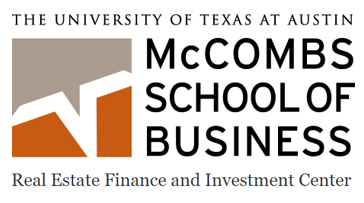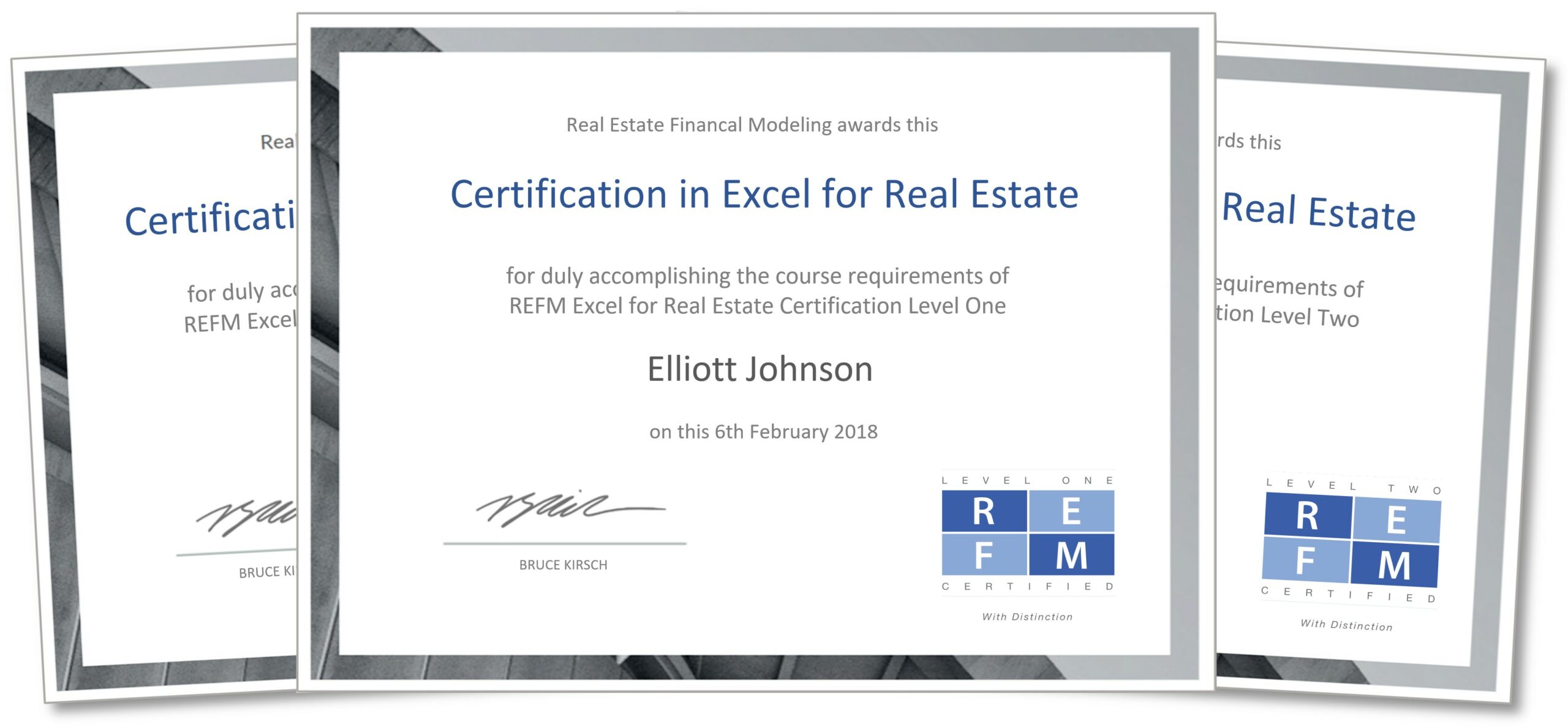Program participants include







Since 2009, REFM has trained undergraduate and graduate students on how to solve problems with Excel so they can get the most of our their courses and prepare to be top performers in the workplace. Lecture-based and hands-on modeling training for university groups also prepares students for the REFM Certification Program In Excel For Real Estate, which students use to strengthen their resumes.

The REFM Courses platform provides a state of the art learning experience.

 Training content is created by REFM founder Bruce Kirsch. Mr. Kirsch is the co-author of the top graduate-level real estate finance textbook, Real Estate Finance and Investments: Risks and Opportunities, along with Dr. Peter Linneman, the founding chairman of The Wharton School’s Real Estate Department.
Training content is created by REFM founder Bruce Kirsch. Mr. Kirsch is the co-author of the top graduate-level real estate finance textbook, Real Estate Finance and Investments: Risks and Opportunities, along with Dr. Peter Linneman, the founding chairman of The Wharton School’s Real Estate Department.
Mr. Kirsch was previously an Adjunct Faculty member in Real Estate at Georgetown University, and he holds an MBA in Real Estate from The Wharton School and a BA in Communication from Stanford University. Prior to founding REFM, Mr. Kirsch worked in analytical roles for two top real estate platforms and a global mutual fund manager.
In many cases, students have little or no real estate or finance knowledge base, nor any of the Excel-based financial modeling skills that are valued so highly by employers. As time during the semester is severely limited, the thorough hands-on teaching of hard financial modeling skills cannot always be accommodated in class. This is where the UCSP adds value.
View the video below to learn more.
The purpose of the program is to:
The teaching and learning are intended to be a supplement to, not a replacement for, faculty-taught content. Engaging in the work is to occur on the student’s own time, at their own pace, outside of class.
REFM recognizes that there can never be a substitute for constructing financial models from scratch, and recommends that all students replicate as many of the program models as they can starting from a blank spreadsheet.
The minimum suggested engagement level for students is as follows:
The materials contained in the full program include:
All self-study modules contain rigorous Excel-based hands-on exercises and solutions, so there is in effect continuous testing integrated into the program.
In addition, there are three formal online Completion Certification exams that the students may take at any time. These exams bestow REFM Certification In Excel For Real Estate. Scoring is automatically, instantaneously reported back to the students, and it can be reported back to the university faculty if desired. Sample questions can be found here:
The program body of knowledge comprises how to apply Excel functions, construct formulas, and build and operate advanced transaction and joint venture partnership financial projection models. The program also includes three online Completion Confirmation tests that students may take at any time.
Detailed module descriptions are found below. The three main categories of content are:
This module is for those with little or no prior exposure to Microsoft Excel. Topics covered include:
This module teaches the basics of operating in Excel, as well as advanced techniques, specifically as they relate to real estate analysis. All topics include exercises. Topics covered include:
In this module, students will come to truly understand the nature of the IRR calculation and see why it reacts the way it does in the various acquisition and development cases that are presented in spreadsheet form. Topics covered include:
Excel functions taught include:
In this module, students learn the answers to the following questions:
In this module, student learn the answers the question: how does a real estate developer know what to pay for a piece of developable land?
Students will learn the basics of real estate development residual land valuation for both income-producing assets and unit sales assets, as well as the principles of valuation through comparable sales (comps).
Topics covered include
Residual Land Valuation Basics:
Specific To Income-Producing Assets (Office/Industrial/Retail, or Apartments):
Specific To Unit Sales Assets (Condominiums or Housing Subdivisions):
In this module, students learn the foundations of real estate finance as well as advanced techniques and topics. Topics covered include:
The developer’s analysis is conducted assuming a mixed-use prototype with ground floor retail and income-producing parking for multi-family, office/industrial and condominiums/housing subdivisions. All topics contain exercises. Topics covered include:
In this module, students learn advanced techniques and topics related to joint venture partnerships and investment waterfall modeling for single property transactions. Topics covered include:
In this module, students will learn big picture real estate private equity fund basics, the general legal structure of funds based in the U.S., how to set up a fund-level model, and considerations for running sensitivity analyses. A property-level partnership analysis is also addressed. Topics covered include:
Ready to get more information?